
 So far as we know, ours is the only species able to define the world in which we live. Definitions, which limit a thing and separate it from all others, increase our understanding, including our understanding of the vast world of print that is a world unto itself, vital and sustaining. Why not have writers define the terms that map the world of writing, using examples from their own work by way of illustration?
So far as we know, ours is the only species able to define the world in which we live. Definitions, which limit a thing and separate it from all others, increase our understanding, including our understanding of the vast world of print that is a world unto itself, vital and sustaining. Why not have writers define the terms that map the world of writing, using examples from their own work by way of illustration?Dr. Richard Taylor
 Literary Term of the Week is brought to you by Katerina Stoykova-Klemer and the international arts journal Public Republic. This segment offers definitions of various literary terms, along with unique examples of their use, in brief audio excerpts from Accents radio show interviews with writers, publishers, and journalists.
Literary Term of the Week is brought to you by Katerina Stoykova-Klemer and the international arts journal Public Republic. This segment offers definitions of various literary terms, along with unique examples of their use, in brief audio excerpts from Accents radio show interviews with writers, publishers, and journalists.
J. Terry Price is a Springfield, Tennessee based writer and photographer, with an MFA in writing from Spalding University in Louisville and is Program Director and a mentor in The Writer’s Loft creative writing program at Middle Tennessee State University in Murfreesboro, Tennessee. His work has appeared in various journals. His short story Eminent Domain was nominated for a Pushcart Prize. Terry is also an attorney with the firm Guenther, Jordan & Price in Nashville, Tennessee.
J. Terry Price discusses the literary term Dialog
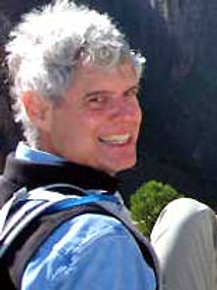
J. Stephen Rhodes is the author of the poetry collection, The Time I Didn’t Know What to Do Next (Wind Publications). He writes about living on the edges between security and fear, guilt and grace, country and city, and prosperity and scarcity. In addition to a Ph.D. in Theological Studies from Emory University, Rhodes received his M. Div. from Columbia Theological Seminary and his B.A. from Eckerd College. He is currently working on an MFA in creative writing at the University of Southern Maine-Stonecoast.
J. Stephen Rhodes discusses the literary term Anaphora
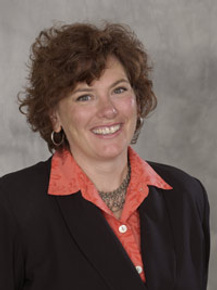
Kathleen Driskell’s second book of poems Seed Across Snow (Red Hen Press, 2009) has been listed as a bestseller by the Poetry Foundation. Kathleen received her MFA in Creative Writing from the University of North Carolina at Greensboro. She is Associate Editor of The Louisville Review and has taught creative writing and literature at Spalding University, the University of Louisville, Elon College, and the University of North Carolina at Greensboro, as well as for many writers’ workshops and conferences.
Kathleen Driskell discusses the literary term Verticality
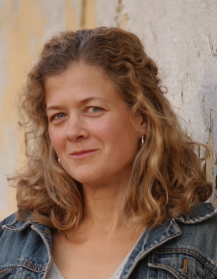
Lynnell Edwards is the author of two books of poetry: The Highwayman’s Wife (2007) and The Farmer’s Daughter (2003), both from Red Hen Press. Her work has appeared in various journals and anthologies. She lives in Louisville, Kentucky where she teaches at the University of Louisville and is associate director for the InKY reading series and board president for InKY, Inc. She received her doctorate in English at the University of Louisville and her undergraduate degree at Centre College in Kentucky.
Lynnell Edwards discusses the literary term Pastoral
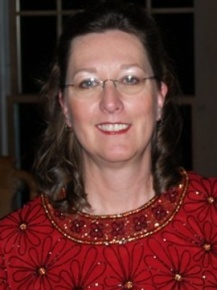
Pat Valdata writes novels, poems and nonfiction. Her publications include the novels The Other Sister (published by Plain View Press, 2008), Crosswind (published by Wind Canyon Publishing, 1997) and the poetry chapbook Looking for Bivalve (from Pecan Grove Press, 2002). Pat received an MFA in writing from Goddard College and is an adjunct associate professor for the University of Maryland University College (UMUC). She writes occasional articles for Chesapeake Bay and Cecil Soil magazines in addition to her day job as a business writing consultant.
Pat Valdata discusses the literary term Point of View
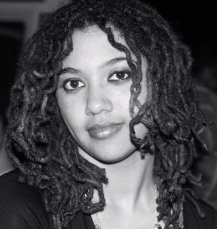
Bianca Spriggs is the author of the poetry book “Kaffir Lily” (Wind Publications, 2010) and her work may be found in the journals, Caduceus, Alehouse, Torch, and the Appalachian Heritage Magazine. She is the Events Coordinator for the Lexington Art League and a freelance instructor of composition, literature, and creative writing. She received a B.A. in History from Transylvania University and her M.A. in English at the University of Wisconsin-Milwaukee.
Bianca Spriggs discusses the literary term Volta

Susan Piver is a writer, teacher, and speaker on topics such as love, creativity, and spirituality. She is the New York Times bestselling author of The Hard Questions: 100 Essential Questions to Ask Before You Say “I Do” and How Not to Be Afraid of Your Own Life, chosen as best spiritual book of 2007 by Books for a Better Life. Her new book, The Wisdom of a Broken Heart, is about applying the wisdom of Buddhism to the pain that arises when a relationship ends.
Susan Piver discusses the literary term Book Package
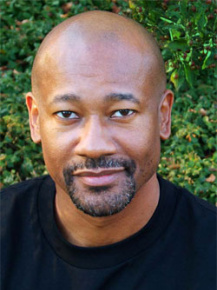
Frank X Walker holds an MFA in Writing from Spalding University and honorary Doctorate degrees from University of Kentucky and Transylvania University. He has lectured, conducted workshops, read poetry and exhibited at over 300 national and international conferences. He is a founding member of the Affrilachian Poets, author of four poetry collections, editor of two anthologies, and the recipient of numerous prestigious awards and grants. He currently serves as Writer-in-Residence and lecturer of English at Northern Kentucky University.
Frank X Walker discusses the literary term Persona Poem
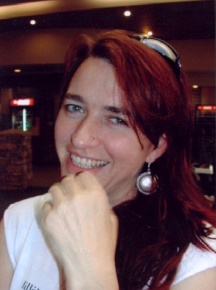
Sonja de Vries is a documentary filmmaker, writer, activist and a mother. Born in Kentucky but raised by her family in Amsterdam, she grew up hearing family stories of resistance to Nazi Occupation. Sonja also spent time growing up on a farm, where she lives today with her son Devlin and partner Beth. She has lived in Cuba, the Netherlands and San Francisco before returning to her birthplace. In 2009, Sonja graduated from the MFA program at Spalding University.
Sonja de Vries discusses the literary term Ghazal
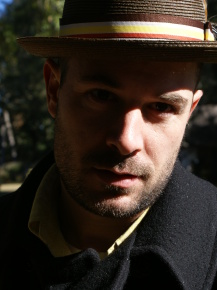
Chris Mattingly is currently pursuing an MFA in poetry from Spalding University in Louisville, Kentucky. His poems have appeared in public-Republic, Margie: The Journal of American Poetry, Moonshot, The Louisville Review, and the forthcoming chapbook Ad Hoc from Q Avenue Press. Chris is also a banjo player and long time member of The Fatted Calf String Band. Chris works on a vegetable farm and a Co-op.
Chris Mattingly discusses the literary term Ekphrastic
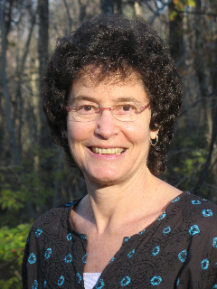
Jody Lisberger‘s story collection, Remember Love, was published by Fleur-de-Lis Press in May 2008. Her stories have appeared in Fugue, Michigan Quarterly Review, Thema, Confrontation, and The Louisville Review. She has a PhD in English and an MFA in Writing from Vermont College. She has taught literature, writing, and feminist theory at the University of Rhode Island, Brown, Harvard, Tufts, Holy Cross, Spalding, and Boston University.
Jody Lisberger discusses the literary term Dialogic

Neil Chethik is speaker, author and expert specializing in men’s lives and family issues. He is the author of two acclaimed books: VoiceMale: What Husbands Really Think About Their Marriages, Their Wives, Sex, Housework and Commitment (Simon & Schuster 2006), and FatherLoss: How Sons of All Ages Come To Terms With the Deaths of Their Dads (Hyperion 2001). He is currently Writer-in-Residence at the Carnegie Center for Literacy and Learning in Lexington, KY
Neil Chethik discusses the literary term Nut Graph

Richard Taylor is a poet and author who is currently a visiting writer at Transylvania University. He is the author of seven collections of poetry, two novels, and several books of non-fiction and history, mostly relating to Kentucky. Raised in Louisville, he lives in Frankfort and owns the bookstore Poor Richard’s Books. He served as Kentucky’s Poet Laureate from 1999 until 2001. In his free time he likes to kayak.
Dr. Richard Taylor discusses the literary term Persona
